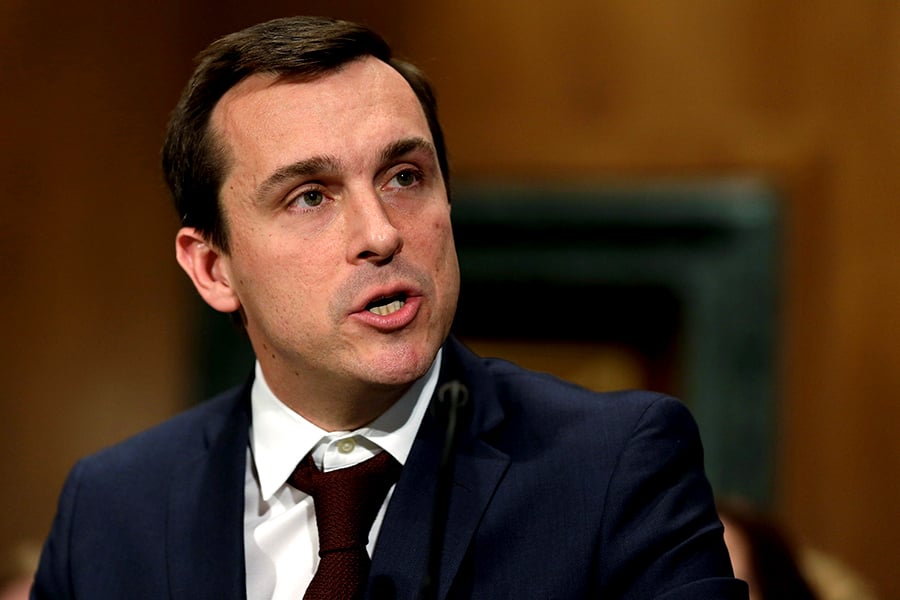SEC commissioner Robert Jackson Jr. voted in favor of publishing for comment
a 211-page document on
easing rules surrounding investments in unregistered securities. But he has qualms about allowing ordinary investors to participate in private offerings, which could become a flash point in a likely SEC rule proposal.
In a statement, Mr. Jackson points to a reference on pages 23-24 of the document about the Securities and Exchange Commission's lack of data on investor harm caused by private placements.
"The questions in this release involve a fundamental trade-off: the costs families suffer when investors are victims of fraud versus the benefits of broader access to capital," Mr. Jackson wrote. "Strikingly, the release says that the commission lacks data to measure fraud in this space. I hope commenters will come forward with hard data that will allow us to examine how often families who invest in these instruments are victims of fraud. Without that evidence, it's hard to see how the commission can strike the basic balance any rules in this area would require."
Currently, sophisticated investors who meet certain income and net-worth thresholds — known as accredited investors — are allowed to invest in private equity, hedge funds and other private offerings. SEC chairman Jay Clayton has made it a priority to
allow greater access to private markets for ordinary investors.
"We will see rule proposals," said Michael Hermsen, partner at Mayer Brown. "I think [the SEC] is inclined to modify the definition of who's an accredited investor as well as allow nonaccredited investors in these private placements with some sort of appropriate limits on their exposure."
Mr. Jackson is slated to leave the commission this fall, but his concerns likely will be echoed by others.
Main Street investors need a better grasp of private funds before they jump into that market, according to William Kelly, chief executive of the Chartered Alternative Investment Analyst Association.
"Giving greater access to private equity and hedge funds has to be done with a tremendous amount of financial literacy and education," Mr. Kelly said. "I haven't seen that talked about enough."
But ordinary investors already are exposed to much risk in the public equity markets, which are going through a period of high volatility, according to Anya Coverman, senior vice president of government affairs and general counsel at the Institute for Portfolio Alternatives.
Adding alternatives to the mix "creates reduced volatility and more diversity," she said. "It's about appropriate balance in a portfolio."
Echoing Mr. Clayton's arguments, Ms. Coverman said defined-benefit retirement plans have access to private-offering strategies, while defined-contribution plans don't — an imbalance that hurts the returns of retirement investors building their own nest eggs.
"As more and more investors are using defined-contribution plans, they should have the same strategies and investment options as defined-benefit plans," Ms. Coverman said. "It's time to consider expansion of the accredited investor definition in a way that continues to protect investors."
Mr. Kelly suggests greater access to private offerings for ordinary investors start in target-date funds with due diligence experts determining the right mix and allocation of the products.
"If we focused on TDFs, that might be a bite-size that we could manage," Mr. Kelly said.







